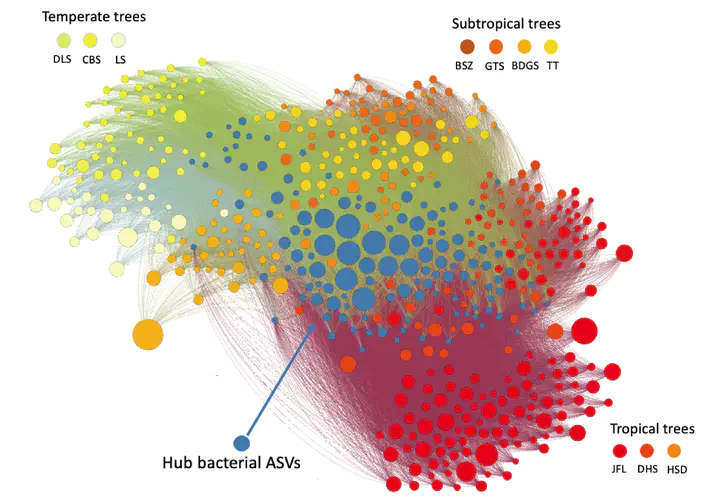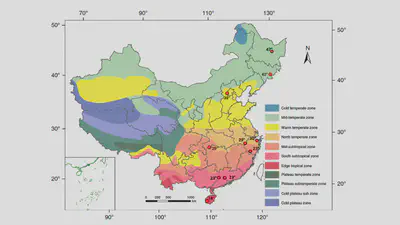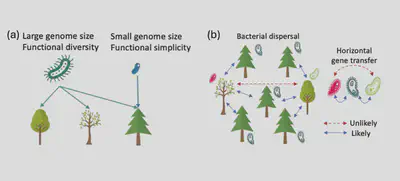Community assembly and biogeography of plant-associated microbes
 Metacommunity-level plant-phyllosphere bacteria association network
Metacommunity-level plant-phyllosphere bacteria association networkUnraveling the factors that shape microbial communities is a crucial pursuit in microbial ecology. However, our understanding of leaf-associated bacteria has been predominantly derived from studies conducted at small spatial scales, leaving us with limited knowledge about the geographic patterns and drivers that influence leaf-bacteria associations.
Based on a biogeographic survey of leaf bacteria on 329 tree species across 10 forest sites along a broad latitudinal gradient in China (thanks to many collaborators), we for the first time provided quantitative and process-oriented understanding on the biogeography of leaf-associated bacteria.

Additionally, our investigation revealed that leaf bacteria specializing in specific hosts tend to possess smaller genome sizes and lower GC content compared to host-generalized bacteria, indicative of genome streamlining in host specialization.
